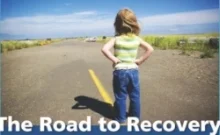We recognize the importance of including families in the recovery process. We believe that treatment can be so much more effective when we can keep family and loved ones involved in the process of recovery. As an effort to promote healing for everyone involved in the treatment process, we provide supportive family services, including weekly family groups and family therapy to clients. We believe that family members can also learn how they can provide crucial support to their loved ones while they are in treatment to help them avoid relapse and move forward in their recovery process. We educate families about the progression of the disease of substance abuse. Our treatment center helps pregnant substance - dependent women to achieve recovery from drugs and alcohol and learn to care for self and their children.
In 2024, DHCS launched the Behavioral Health Virtual Services Platform – two free behavioral health services applications for all families with kids, teens, and young adults ages 0-25. The web- and app-based platforms offer all California families free one-on-one support with a live wellness coach, a library of multimedia resources, wellness exercises, and peer communities moderated by trained behavioral health professionals to ensure content is appropriate and safe for all users. Pls visit CalHope to learn more.
Please visit this link to learn more about Al-Anon family resources at National Institute on Alcohol Abuse.
Please visit the link to learn more about family-centered treatment discussed by SAMSHA.
Here is free resource and support groups for families and friends created by Smart Recovery-the leading self-empowering addiction recovery support groups http://www.smartrecovery.org/resources/family.htm
Dealing with a loved one who is challenged by addiction can be nearly all-consuming for a spouse, parent, sibling or friend. It's not uncommon to feel at a total loss for how to be helpful. There are proven alternatives to "tough love" and other intervention style ultimatums for helping a loved one. A combination of SMART Recovery program tools (based on cognitive therapy) and CRAFT (Community Reinforcement and Family Training) can help individuals regain control and maintain communication with their loved one. Pls see this resource http://www.smartrecovery.org/resources/articlesessays.htm
Parents often lack information when it comes to their kids and drug abuse. This resource will teach parents how to talk to their kids about drug abuse, and what they can do if they find their child has been using drugs. Click on image to read more.
Rational Recovery® support groups are family centered, expecting addicts to accommodate the family’s reasonable expectation of lifetime abstinence from alcohol and other drugs. Here are the resources to explore http://rational.org/index.php?id=91
The California Department of Health Care Services (DHCS) has been awarded a new $140 million grant to help fight opioid abuse in the state, part of an overall effort that will provide prevention and treatment services for an estimated 270,000 individuals. Even if the individuals struggling with addiction do not have health insurance or financial means to pay for treatment, they can contact California Department of Health Care Services at 1-800-541-5555 to find out on how to apply for Medi-Cal services. Please visit the link to read more about Medi-Cal application.
There are many free support groups available for aftercare sobriety maintenance -
AA 12 steps - www.aa.org
NA 12 steps - http://www.na.org/
SOS - http://www.sossobriety.org/
Smart Recovery - http://www.smartrecovery.org/
Moderation Management - http://www.moderation.org/
Women for Sobriety - http://www.womenforsobriety.org/beta2/
Life Ring - http://lifering.org/
Rational Recovery - www.rational.org
Rethinking Drinking - http://www.rethinkingdrinking.niaaa.nih.gov/
Call us today for information at (844) 867-7326 !



